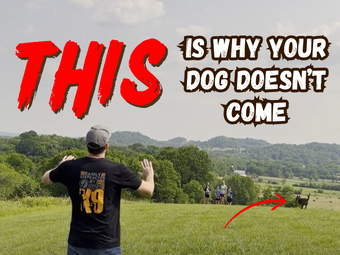History: The Border Collie originated in Great Britain where they were bred to herd sheep. They are notorious for their intense stare or “eye” in which the dog would use to control his flock. They are believed to be a cross between the old Roman dogs and the Viking spitzes. They became the perfect dogs for Shepherds with their stealthy crouching and focused energy. Today, the Border Collie is still used for herding work but has also become a popular companion in both Great Britain and the United States The have also gained recognition in agility sports and are consistently on the list of “world’s smartest dog breeds”.
Temperament: The Border Collie is a very intelligent, energetic, and alert dog. They tend to be affectionate with friends and family but may be more stand-offish with strangers. This breed likes to keep busy and may become bored easily if not given large amounts of physical and mental exercise. Not having enough exercise may result in your Border Collie barking or digging. They need an active owner who is willing to go for daily walks or runs to help with all of the energy they need to release. The Border Collie also requires an owner who is strong willed and able to combat the independent and strong minded personality of their dog. Be sure to correct for herding behaviors so it does not resort to your Border Collie gathering and chasing children, other pets, or cars. Starting proper socializing and obedience training at a young age will help to have a well-mannered dog for you and your family.
Health/Grooming: There are two varieties of the Border Collie’s coat: smooth and rough. Both are weather -resistant, double coats that have a softer undercoat and a coarser outercoat. The rough coat variety has medium length fur, while the smooth coat variety has shorter fur. They do not need excessive grooming but do require weekly brushing to keep their coats looking best and prevent matting. They shed seasonally and will require more brushing during this time. The Border Collie may be more prone to health issues such as PRA, Collie Eye Anomaly, Osteochondritis dessicans (OCD) and hip dysplasia. Making sure you receive clearances from OFA and CERF with help ensure your dogs have been tested for these issues.


